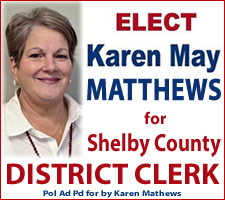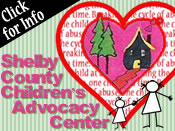
February 26, 2024 - “If you look at the history of country music, it's sort of like a roller-coaster. It gets really popular and then it fades, and then something comes along and brings it back. I'm afraid it's in a decline right now and I'm not sure what is going to save it,” began Dr. Scott Sosebee as he addressed the February monthly meeting of the Timpson Area Genealogical and Heritage Society on Wednesday. “The Nashville 'country-politan' sound had sent it into just such a decline in the late 1960's until 'Texas Outlaw Country' came along and saved it.”
“When it debuted in the early 1970's, Outlaw Country began to take over country music, and it began to even cross over into the pop charts. In fact, you can argue that by the end of the 1970's, it was the most popular form of music in the nation. Willie Nelson and Waylon Jennings were probably the two primary figures of this musical genre and they were known well outside of country music circles, but defining what 'Outlaw Country' was proved difficult,” Sosebee continued. “The term was coined by a record company executive and the musicians themselves, most notably Waylon Jennings, hated it. As Jennings would write in a song 'Don't y'all think this outlaw bit has done got out of hand? What started out to be a joke, the law don't understand.' They much preferred the term 'progressive country'. In fact, what defined 'Outlaw Country' was a rejection of the Nashville sound of the late 60's, which was characterized by lush, almost orchestral arrangements, and return to the earlier roots of country music from the 40's and 50's.”
“Outlaw Country or 'progressive country' began with a group of outsiders or rebels who were yanking country music by its lapels into a style that spoke to a new generation. It was, in many ways, a form that was born, bred, and continued to be played in Texas. It was almost more than anything, Texas music, that was being played in the honky-tonks of Texas long before it became known on the radios of the world in the 1970s. It's hard to believe now that there was a time when Willie Nelson, Waylon Jennings, Jessie Colter, Kris Kristofferson, Sammie Smith, Michael Martin Murphy, Jerry Jeff Walker, and even the son of the sainted one himself, Hank Williams Jr., were considered ne'er-do-wells, rebels, outside the mainstream of their chosen musical genre. They were considered such and dubbed, as some media flack called them 'Outlaw Country', because what they played was an affront to the Nashville establishment. Ironically, though, the music they pioneered saved country music and made it more popular than it had ever been,” Sosbee shared.
“As the 1970s dawned, country music was a sputtering genre. Certainly, the intricately arranged, string-heavy Nashville sound, or 'country-politan,’ that began when rock and roll began to take over the airwaves and erode the country playlists, had saved the studios and country record labels in Nashville. But by the late 1960s, it had evolved into a formulaic, uninspired genre, dominated by studio executives, not musicians. Nashville record executives dictated what acts would be played, not the talent. At the same time, rock and roll had also changed, first having morphed into the pure rock genre dominated by the Beatles and other British-invasion bands, and then received an infusion from 'acid rock' rising out of San Francisco and the 'counter culture' movement of the 1960s. Those changes had led some of the newest rock musicians of the 1970s to begin to look back toward the blues foundation of early rock and roll, as well as incorporating the newer elements of folk and traditional honky-tonk music from the Hank Williams, Ernest Tubb, and early Johnny Cash period. The result was an eclectic sound coming out of those recording sessions, pioneered by acts such as The Eagles, America, Creedence Clearwater Revival, and The Flying Burrito Brothers. Nashville executives didn't, but musicians realized that at a fundamental level, those groups were playing country music.
One of the first to recognize that sounds were changing was Texas-born, California-raised, Buck Owens, whose 'Bakersfield sound', dominated by the hard-driving 4/4 beat that he pioneered with his band The Buckaroos, had begun to make an impact and receive radio play. Veteran Johnny Cash used his popularity to force Columbia records to give him greater creative control, which resulted in his ground-breaking 'Live from Fulsom Prison' album, released in 1968. However, the group of musicians who would eventually cause the biggest move away from the Nashville sound was some Texas-born and raised musicians who chafed at the restrictions of the Nashville establishment. Three Texans, Willie Nelson, Kris Kristofferson, and Waylon Jennings, were the first to challenge the mainstream and begin the movement. Nelson and Jennings had been in the business for quite some time at the beginning of the 1970s. Nelson, born in Abbott and influenced by not only the bluesy gospel sound of his youth but also traditional jazz, had become a successful Nashville songwriter, penning hits for Ray Price, Faron Young, and Patsy Cline, but he had had trouble breaking through as a solo artist,” Sosebee explained.
Willie didn't fit the Nashville mold of a country artist and “even though his label put him in a turtleneck and jacket and tried to promote him as a country Perry Como, it didn't work.” His music was unique and “by the start of the 70s Willie was frustrated. Waylon Jennings was a native of Littlefield in the Panhandle. He cut his musical teeth as a touring band member for Lubbock's Buddy Holly. After Holly's death in 1959, Jennings somewhat evolved into a country act, although his rockabilly and folk sound made him somewhat of a misfit. Nashville record executives couldn't figure out what to do with him. In fact, Jimmy Buffet's song 'Brand New Country Star' is about Waylon Jennings,” Sosebee revealed. “Jennings' stubborn nature was well-known in Nashville and he was kicked out of more than one recording session for his refusal to follow a record producer's instructions on how to play his music.”
“Kris Kristofferson arrived in Nashville later than Nelson or Jennings, having left a promising career as an Army officer to pursue a music career. Like Nelson, he had had some success writing songs for others, but he was reluctant to perform himself, believing that he was not a talented vocalist, but he staunchly refused to re-arrange his songs to suit Nashville's taste,” said Sosebee. He was one of the pioneers of a sparse, stripped down, almost rough sound, which didn't interest the record labels. “What all three of these musicians shared, in addition to friendship, was an admiration for the independence that rock and folk acts had in recording their music. Like Bob Dylan or the Rolling Stones, they wanted to write and record their own music, independent of Nashville creative control. Eventually these three, along with others, would move back to Texas and give birth to what would become known as progressive country music.”
“Willie Nelson returned to Texas in 1971 after his house in suburban Nashville had burned down, disheartened with his career and the music business in general. He resolved to live in Austin off of the royalties from his songs and retire. However, once back in Austin, he began to play a few gigs around town, including at the Armadillo World Headquarters, a converted National Guard armory. At his AWH shows, he noticed that the traditional country fans were outnumbered by people with long hair...what were then called hippies. As he met and began to talk to the hippies, he found that he and they had a lot in common, sharing a dissatisfaction with traditional societal and political norms,” Sosebee related. Now able to play whatever he wanted to, Willie's popularity around Austin began to grow and he recognized a new audience for his music. “After playing at the Dripping Springs Reunion, Nelson and his band went into the studio and recorded 'Shotgun Willie,’ a revolutionary album that was probably the first progressive country recording ever. Released in 1973, the album received little airplay and was a flop...except in Texas! Thinking he might have hit on something, Willie released the concept album 'Phases and Stages' in 1974 to greater success.”
Willie's friend Waylon Jennings took notice of what was happening back in Texas. Having lived in Nashville since 1965, Jennings was at a low point in his career by 1972, never having achieved significant success there. Returning to Texas, he released two albums, 'Lonesome, Ornery, and Mean' and 'Honky-tonk Heroes” which achieved critical and commercial success. “This surprised Jennings who declared he hadn't done anything differently than he had always done. The success of these albums convinced his label to leave him alone and give him the creative control he had sought.” Sosebee revealed. Soon other country musicians who had a different vision for their music began to gravitate to Austin and found acceptance for their music there. Artists like Jerry Jeff Walker, Towns Van Zandt, Michael Martin Murphy, and Guy Clarke shared a disdain for the Nashville sound. Their success there formed the basis for what became known as “Outlaw Country”.
Although progressive country had been gaining popularity, especially in Texas, Nashville pretty much ignored it and music executives refused to play it on the radio. However, the audience for this new music continued to grow as Nelson attracted new fans to country music, especially “many who were originally rock aficionados and had been turned off by the rise of disco music in the early 70s. By the mid 70s, all these things began to collide and two albums released in the mid 70s changed everything. When Willie moved to Columbia Records he was granted full artistic control by his contract. He took full advantage of this freedom and the result was 1975's groundbreaking 'Red-headed Stranger,” Sosebee declared. Columbia released the album only after pressure from Nelson's lawyers, but they refused to promote it. It didn't matter. The album became a huge success, remaining on the country charts to this day, and the single “Blue Eyes Crying in the Rain” became Nelson's first #1 hit.
A second album released about the same time sold even better. Wishing to cash in outlaw country's growing popularity, RCA executives put together in album of old unreleased recordings by Waylon Jennings, Willie Nelson, Jessie Colter, and Tompall Glazer that had been gathering dust in the vault. Packaged as “Wanted! The Outlaws”, the record became a “runaway smash.” “The album racked up sales so fast that it became the first country album certified as Platinum within two months of its release,” Sosebee shared. Although it was a huge best-seller, the artists themselves saw none of the profits. “The success of 'Wanted! The Outlaws” and “Red-headed Stranger' finally broke the embargo on radio air-play for outlaw country. It was now a sensation. By the end of the 1970s and beginning of the 1980s, it had transformed country music. It made Outlaw Country the #1 musical genre in the nation. More country albums were sold between 1975 and 1984 than Beatles albums had been sold between 1964 and 1968. During this period, country radio stations grew from fewer than 500 to over 2000. The release of the John Travolta movie 'Urban Cowboy' in 1980 was both a blessing and a curse. Although it boosted the popularity of outlaw country even more, it proved that this music was now mainstream. No longer played by outsiders, it became a commodity that Nashville record executives could control. At that point, 'Willie and Waylon and the boys' decided to go do other things, but that's a story for another time,” concluded Sosebee.
The Timpson Area Genealogical Society meets at 2PM on the third Wednesday of each month in the meeting room of the Timpson Public Library on the corner of Austin and Bremond Streets in downtown Timpson. The TAGHS library is located within the Timpson Public Library and is open and staffed from 9AM until 5PM weekdays. Telephone 936-254-2966 and ask for the Genealogical Library.









